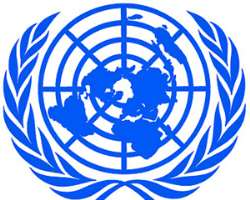INTERNATIONAL COMMUNITY CALLS ON LEADERS OF SOUTH SUDAN TO PUT THEIR PEOPLE FIRST AND END THE CONFLICT

NEW YORK, September 26, 2014/African Press Organization (APO)/ -- Millions of people hit by conflict and severe food insecurity need urgent help in South Sudan. World leaders, aid chiefs and other senior representatives came together today at the United Nations to raise awareness of the urgency of the humanitarian situation and call for a peaceful solution to the crisis.
Nearly two million people have been forced from their homes by violence since last December. Almost half a million people have crossed borders into neighbouring Ethiopia, Kenya, Sudan and Uganda, while four million people – more than a third of the entire country – are facing alarming food insecurity.
Led by UN Secretary-General Ban Ki-moon, keynote speakers at the meeting – including H.E. Dr. Aisha Abdullahi, Commissioner for Political Affairs of the African Union Commission, and the Ministers for Foreign Affairs of Ethiopia and Norway, among others, – called for a sustainable and peaceful solution to the crisis.
“I have told the parties there is no military solution to the conflict. I call today, once again, on the leadership of both sides to find an inclusive and mutually agreed power sharing arrangement to start a transitional phase of governance,” said the Secretary-General. “Those responsible for atrocities must face justice through a mechanism that meets international standards. The leaders must protect civilians, allow humanitarian access and guarantee the safety of aid operations.”
Nearly forty Member States and regional bodies took part, underscoring the high priority this crisis holds for the international community.
Senior representatives of Médecins Sans Frontières, the International Committee of the Red Cross, the UN Peacekeeping Chief and the SG's Special Representative for Children and Armed Conflict joined Under-Secretary-General for Humanitarian Affairs and Emergency Relief Coordinator, Valerie Amos, in highlighting the appalling situation faced by the most vulnerable South Sudanese, especially women and children.
“Working with our partners we may have managed to avert a famine situation in South Sudan this year. However, the real risk of famine remains for at least 2.5 million people in the coming months, while millions more fear renewed fighting,” warned USG Amos. “It is vital that the political leaders in South Sudan put their people first. Aid organizations cannot solve this man-made crisis – we can only try and help people deal with the dire consequences.”
Humanitarian agencies are seeking to raise US$1.8 billion for South Sudan by the end of 2014 so that aid workers can deliver basic life-saving supplies and services. During the event the United Kingdom, the Netherlands, Sweden, and the European Union pledged more than US$106 million in new funding for humanitarian action, and an additional CERF allocation of $60 million was announced.
In conclusion, USG Amos noted that the international community must ensure that the leadership of South Sudan recognizes the seriousness of the situation: “We have to put the people first.”
